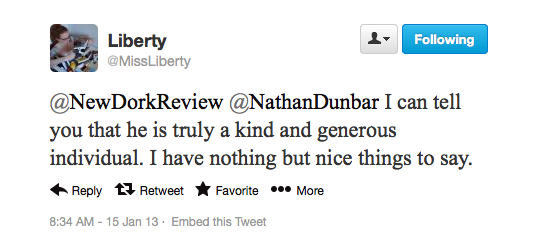
Complicated Thoughts About the New Dan Brown Book
Tuesday of this week was a banner day if you’re of the cynical persuasion. You probably had a field day with the news of a new Dan Brown novel to be published in May. Great, another novel for the brain-dead dillweeds of the world! Won’t this gravity-boots-wearing weirdo just go away?
But the backlash against such cynicism was swift and severe. Dan Brown moves units. He gets asses (and money) in bookstores. Why are we always skeptical of what’s popular? As wise and generous Rioter Liberty pointed out in the tweet below, he’s just simply a nice guy. So why are we such jerks to him?

So I started to sour on Brown, but at about the same time I was diving into his backlist. I enjoyed Angels and Demons well enough, but then I read Digital Fortress. And the souring was complete. It’s my no-hesitation answer to “what’s the worst book you’ve ever read?” Whenever anyone suggests a “serious conversation on Brown’s literary merits,” I giggle, and think of this book. It demands to be made fun of. I mean, it’s hilariously bad. And Brown, who seems like an affable chap, would probably agree.
But so, after a six-year gap after The Da Vinci Code, The Lost Symbol came out in the Fall of 2009, and like many readers, despite my complicated “relationship” with Brown, I was excited. I gave it a serious go, determined to weigh its merits and faults independent of my long-sinking opinion of Brown. Like many readers, I didn’t much care for it. It cemented Brown on my list of literary nemeses. And it further complicated my already complicated love-hate relationship with Mr. Brown. (The vitriol in those posts is comical, looking back. I’ve softened a bit since then.)
So, in the wake of the Inferno announcement, where does all this leave us? Clearly it’s more difficult than I would’ve thought (or hoped) to move beyond the simple (and simplistic) debate about people being skeptical of popular literature, only because it’s popular. Without judging individual work solely on its merits, there’s little constructive to be derived from such a conversation. Besides, you’re tired of it. And I am too. A few months back, Rioter Scott Beauchamp wrote an insightful, extremely well-argued piece titled “Should You Feel Bad About Reading Stephen King?” Substitute Brown for King, and that piece says it all on the idea of Brown’s popular novels vs. “serious literature” (whatever that means).
But I also think it’s totally fine to have a little fun at Brown’s expense. I mean, the guy can certainly be unintentionally giggle-worthy at times, can’t he? All those hilariously faux-profound sentiments expressed in italics (eg. Katherine’s destiny is to light this torch. Mine is to destroy it.) to show what characters are thinking? And his earnestness about his conspiracy theories? It’s like somebody needs to remind him he’s a novelist. He’s writing fiction. And I can’t help but laugh.
And so, finally, for the record, whatever else you get out of this post, know this: I’m excited about Inferno. Aren’t you? If Brown’s not your thing, don’t read it. But don’t be a jerk about proving how literary you are by ignoring Brown. We get it. That’s fine. On the other hand, if you like Brown and his stories, or are amused by him, or simply want the right to have an opinion, then you should be excited for Inferno. For better or worse, it IS a literary event. And it WILL get people talking about and buying books. And that’s ALWAYS a good thing.











